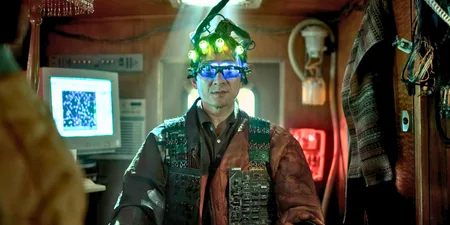“New filmmakers and new films don’t stand a chance.”
The age-old excuse for the lack of diversity at the Academy Awards and Baftas is that there is just not enough diverse talent making movies to warrant recognition like their dominant white counterparts. In 2020, that excuse just doesn’t hold up.
The last 12 months of cinema has offered a smorgasbord of brilliant stories told from the point of view of women and ethnic minorities, both in front of and behind the camera. The Farewell, Waves, Hustlers, Portrait of a Lady on Fire, Honey Boy, The Souvenir, Luce, Clemency and The Last Black Man in San Francisco are just a few of the most critically-acclaimed movies of 2019 that didn’t get enough love or any love at either of the major British and American awards ceremonies in the major categories. This lack of recognition for the films, performers and mostly female directors begs the question: why?
“A huge majority of the Bafta membership is at the older end of the population demographic and with this ageing membership, there is a bias towards certain types of films,” a white, male Bafta member, newly inducted, tells me. “I have been in awards screenings for critically acclaimed independent films, where the cinema is half empty and elderly members start leaving after ten minutes.”
In 2012, an LA Times survey concluded that the average Oscars voter is a 63-year-old white man and following the #OscarsSoWhite debacle, in 2016, the Academy of Motion Pictures And Science made changes to their membership requirements to try and combat this. Applied retroactively, voters are eligible for a ten-year membership that can be renewed if they have been active in the film industry during that time. If not, they’re out.
Bafta has not followed AMPAS’s lead in this regard, though it has changed its application rules for new members to welcome more diversity and used the BFI’s Diversity Standards to decide which titles are eligible to be nominated in the Outstanding British Film and Outstanding Debut by a British Writer, Director or Producer categories. It also conducted its own diversity survey in 2016 that showed the median age of members was 52, 41% of respondents were female and 13% were from minority ethnic groups though only 46% of the then-7500 membership took part.
Several of the Bafta members I spoke to suggested that all 6700 members should undergo unconscious bias training before they are allowed to vote, like BIFA requires. Even if this was enforced by the Academy, though, it still wouldn’t guarantee that each member would watch every movie up for consideration.
In the first round of voting to decide the shortlist of nominations, all members can vote for Best Film and the Acting categories but the others are voted for by the relevant specialist chapter e.g. directors vote for Best Director and editors vote for Best Editing. However, that is still a lot of movies to watch in a small amount of time.
“I received about 80 DVDs, and there were just over 140 online links,” a black, male Bafta member said. “Who is seriously going to watch 200+ films in two months?”
“I genuinely question whether most of this huge number of members watches even half of the films, with a bias towards the obvious, big Hollywood releases,” the white, male Bafta member adds. “Films that are not mainstream crowd-pleasers suffer.”
“I know members who only watch popular films,” a black, female former member says. She didn’t renew her membership because she felt Bafta was “too elitist”: “I’ve heard them boast about not having time to watch all the films, ‘but, oh I heard Tarantino is good.’ New filmmakers and new films don’t stand a chance.”
This is perpetuated by the fact that mainstream movies like The Irishman and Once Upon a Time in… Hollywood come with studio backing and talent to lure members to screenings. One white male Bafta member and producer – who has been a member for over 20 years and won two awards himself – recalls a screening of eOne’s 1917. “They already had George McKay and Sam Mendes for the Q&A but they also had Benedict Cumberbatch which was almost embarrassing because Benedict is only in it for one scene,” he said. “You know why they did it, because they wanted to make sure the screening was packed.”
Clearly there needs to be a shake-up of the system to ensure that big name, big studio-backed, and predominantly white films aren’t the only ones members are watching. Marc Samuelson, head of Bafta’s film committee, recently told Variety that there would be a “careful and detailed review within and outside the membership,” to understand what can be done to combat this but what will the result be? Unconscious bias training and continuing to invite in new and diverse members can only go so far but a consensus amongst the members I spoke to seems to be that more control of the initial vote should be implemented.
“They almost need a panel that will select a whole group of films to be voted on,” the older white male Bafta member says. “Maybe this can be achieved by using only members who are actively working, or a specific cross section of members who represent an even spread of ages and backgrounds,” the younger white male member adds, “or requiring members to apply to be a part of an initial round of voting, where they would then need to provide proof that they have watched the films.”
Making these types of changes won’t be easy and the members I spoke with are more than aware of that. “We are talking about a system that is driven primarily by distributors who, of course, set up by the awards themselves,” the black, male Bafta member says. “It’s quite a daunting overhaul and this is why nothing has changed.”
However, if Bafta are committed to fairer representation and equality in its organisation and are “frustrated and deeply disappointing” in the nomination results, as CEO Amanda Berry said it was in an email to its members, then surely this is a daunting task worth undertaking.










































